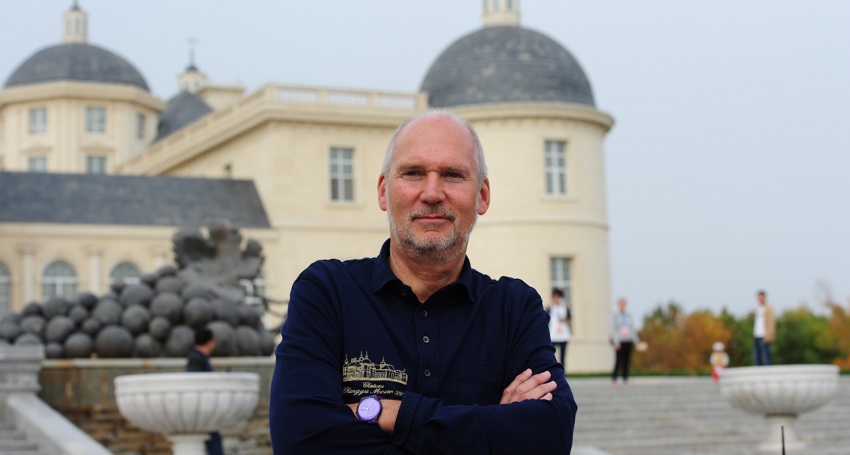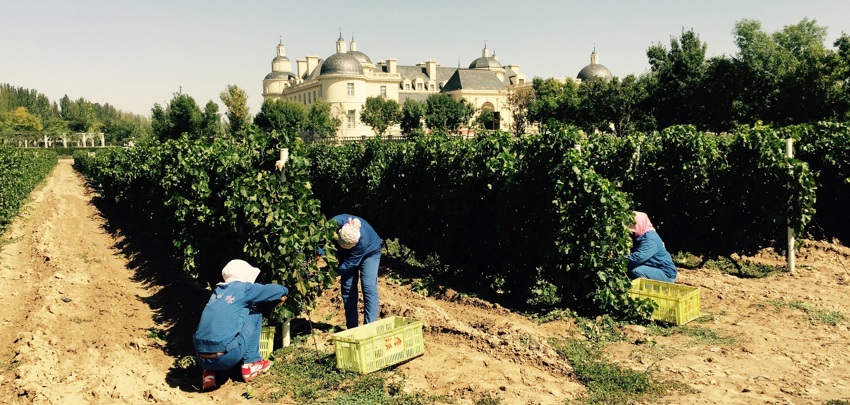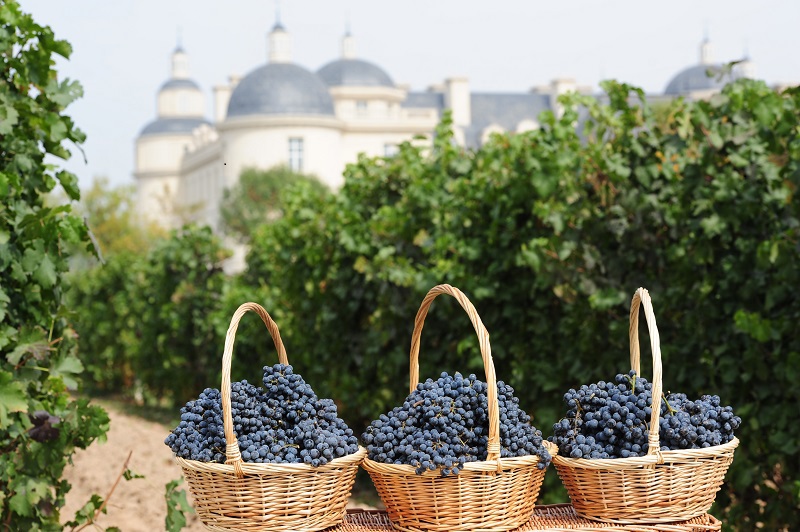All about China and Cabernet with Lenz Moser
Lenz Moser is synonymous with the Austrian wine industry, but he has also spread his wings to plenty of other regions throughout the world. Perhaps his most ambitious undertaking yet is Chateau Changyu Moser XV, which lies just west of Beijing in Ningxia, China.
We caught up with him recently, and chatted about the unique challenges of winemaking in China, the impact of Coronavirus, and the Chinese market...

What drew you to the challenges of making wine in China?
It is pure coincidence that I ended up there, because I was curious about a new country. So, I was lucky that a friend of mine sent me to China 16 years ago and said, "Check it out, there might be something brewing." This was before they all had websites, and my assistant at the time would call Chinese wineries, and as soon as they heard her speak, they would pause and simply hang up. At least at the switchboard level, they weren't able to speak English. So, I had to get a Chinese consultant who helped me get a foot in the door there, and I touched down on 8 August 2005, fell in love with Changyu, and here we are.
I started as a consultant for Changyu. And then in June six years ago, we had a game changer when I spoke to the CEO of the holding company on the phone, and we agreed that I would be the head winemaker. We started from scratch basically, with a new and interesting proposition. And then we got lucky, because we were the first in the market in 2016, before France and the rest of Europe. It was a race that we decided we would win.
Why is Ningxia a good location for making wine?
It is an ideal growing area, and I haven't seen many of them in the world. By 'ideal', I mean it has a high altitude of 1,100 metres, which gives us hot days and cool nights, and it has around 3,000 sunshine hours per year. It's dry, but with a good water source with the river coming from the Himalayas. But the decisive factor in 2009, when I was still appointed in only a marketing capacity, was that I saw the smallest Cabernet Sauvignon berries I have ever seen in my life. This doesn't mean a lot to the consumer, but winemakers know that it produces a very good juice to skin ratio. The only downside, if there is one, is that we have to bury the vines in the winter, because the temperatures drop to between -10 and -25 degrees Celsius, and the vines can die at -17ºC. It is a big labour cost, but apart from this one downside... the proof is in the pudding, as they say, and eight out of 10 top wines in China come from Ningxia these days.

Where in the market would you place the Chateau Changyu Moser XV wines? Are they on the same level as a top Bordeaux, or a Napa Cab?
Since you're mentioning those two wines, we just received an issue of the German wine magazine Vinum, and we tested exactly what you are asking here! We put top Chinese wines from Jancis Robinson's list, not just from Changyu Moser, against some top Bordeauxs and Napa Cabs.
To cut a long story short, the common opinion was that China is different from the rest of the pack, which I think is great news, and that there is a certain spice element in the wine which they liked. It made it easier for them to pick out the Chinese wines. But the very good news is that these Chinese wines can play in that top level, and that is why we place our wines in that same Cabernet league. At this particular tasting, our top-class wine, Purple Air Comes From The East, was placed at the top of the Chinese wines. And for an Austrian winemaker, making wine in China, beating the French... my ego is still under control, but it is a thing of pride for me!

What do you think the state of the Chinese wine industry is now?
The Chinese wine industry is in transition. The Chinese consumers have been exposed to more international wines through imports, and have got a taste for other wines. The younger consumers, especially, travel more - they taste at home, and they can be very critical! They are not status drinkers; they want to drink a glass of wine because it feels good, it tastes good, and it enhances an evening. Chinese students, when they study abroad, they start to like our European lifestyle, and are able to discern quality vs. price, so there is a market for good Chinese wines. I'm banking on China for a simple reason: it's 1.4 billion people, and about 300 million of those are regarded as middle class. If they develop an appetite for the European way of living, and wine is part of it, we're very fortunate to have access to that market. They are curious, ambitious, innovative, and hungry for new things.
How did coronavirus and lockdown impact your winemaking, with restrictions on visiting China?
Well, I shouldn't complain too much here, because it helps a lot to have a good team in place. I'm a positive person anyway. 2020 was the first vintage without me, but I had an assistant there called Emma, who received a lot of training in France and Germany. She acted as my eyes, ears, and palate, and she did a fantastic job. With wine samples, email, and Zoom, it was very peculiar to make wine, but it is a very good vintage!
Where are the Changyu wines distributed to, and how do you feel about the wines' standing in the UK?
We are in 40 countries around the world, making us the #1 most distributed wine from China in the quality field. Pre-Covid, we followed the strategy of focusing on the On Trade, so we really got hammered during the lockdowns, because I lost my distribution overnight. We also lost a lot of top sommeliers who went into other industries, especially in England, so we are shifting our strategy as a team. There are three pillars: On Trade, qualified Off Trade with independent and fine wine shops, and e-commerce. We cater to these three sectors on a global scale, and ever since we started doing this, business has come back. We ship to England about once or twice a month from our hub in Germany, so I am very happy with how things are going in the UK.




